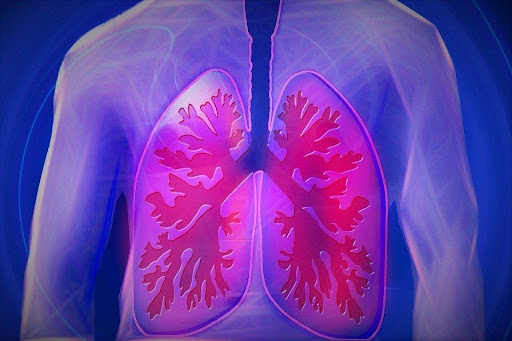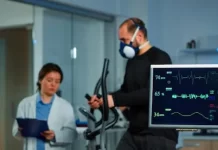Perhaps the most critical function of the human body, without which our bodies cannot survive, is breathing. Our lungs remove carbon dioxide from the body and supply fresh oxygen to organs ensuring their proper functioning and health. Be it digestion, singing, laughing, walking, or even solving a crossword puzzle- every task requires a significant amount of oxygen to produce energy. Physiological aspects like a person’s height, age, gender, weight, altitude, and genetics can impact the quality of their lungs and breathing. These are factors we can’t control to Keep Your Lungs Healthy.
Although respiration is an involuntary act, it is significantly affected by the everyday actions of a person. The type of food we consume, the air we breathe, and where we spend our time are all choices that can degrade the quality of our lungs and, consequently, the quality of our life.
So, we must not take our lungs for granted and give them the care they need. Here are a few ways to promote lung health and enhance breathing capacity.
Stay safe at the workplace to Keep Your Lungs Healthy
Some jobs make you prone to lung disease. For example, coal mining, woodworking, and even jobs requiring you to work with asbestos. People who inhale microfibrils of this toxic mineral expose develop mesothelioma, which is a rare form of cancer. So if your workplace/job can compromise your lung health and function, be sure to take necessary precautions to reduce the risk or prevent damage altogether. Wear the correct protective equipment to stay safe at the workplace. Hold your employer accountable in case they’re negligent. You can also contact organizations that provide emotional and financial support to patients who’ve developed chronic lung diseases at the workplace.
Stay away from smoke to Keep Your Lungs Healthy
Perhaps the most obvious thing one can do to protect their lungs is maintain a distance from smoke. Cigarette smoke contains thousands of toxic chemicals and carcinogens that can permanently alter the structure and function of your lungs. Tobacco smoke, when inhaled, damages lung cells. It affects them on a molecular level, creating mutations within healthy DNA, affecting the ability of cells to exchange gasses. More lung tissue becomes useless as the damaged cells undergo necrosis and die. The damage caused by cigarette smoke is irreversible, and no treatment can fix it. Over 50% of smokers develop respiratory disorders in their lifetime. If you’re a chain smoker, consider reducing your daily consumption or quitting altogether. You can also consider using nicotine patches if quitting is difficult.
Keep your body moving
Staying active keeps both the body and the lungs in good shape. We don’t use our lungs at their total capacity in regular day-to-day tasks. To strengthen our lungs, we must challenge them with more intense activity. When we exercise, our respiratory system has to work harder because the body needs more oxygen to fuel the muscles. As the breathing rate increases, lung muscles contract and expand faster. Regular aerobic exercise is key to ensuring your lungs stay fit and healthy. The more exercise you do, the stronger your lungs become, and they function better.
Moreover, being active enables lungs to resist aging, disease and generate new lung tissue faster. Even if you at some point develop a respiratory illness, your lungs will be able to work tirelessly to slow the progress and delay its onset.
Avoid inhaling pollutants
While none of us can avoid air pollution, we can make it a habit to spend less time in areas with poor air quality. At a young age, the lungs can easily resist toxins and pollutants. But over time, they lose this ability. They cannot filter out pollutants and thus become vulnerable to infections and illness.
Since we spend most of our time at home, we must start there. Ensure your residence is a dust-free zone by regular dusting, vacuuming at least once every week, and having a proper ventilation system with exhaust hoods. Avoid using synthetic air fresheners and scented candles, which contain chemicals that aggravate allergies and disrupt breathing. Moreover, avoid indulging in physical activity in areas with excessive industrial smoke or heavy traffic.
Take precautions against infections
Common respiratory infections like the flu and cold can become dangerous when you age. Plus, for those who already have lung-related illnesses like asthma or COPD, these infections can be a matter of life or death.
The best way to steer clear of infection-causing microorganisms is to wash your hands with soap and water or alcohol-based cleaners. Avoid spending time around huge crowds during the flu season, and be sure to keep up with your vaccinations and flu shots. Schedule regular appointments with the dentist to ensure good oral hygiene as dental germs can also affect the health of the respiratory tract. Brush your teeth twice a day, use mouthwash and consume plenty of fruits and vegetables because they boost your immunity.
Regular checkups
Investing in preventative medicine and regular checkups with a professional will help you stay on top of your health. Often things appear to be alright, but many illnesses display signs long after they have affected our lungs. Early diagnosis is key to preventing any long-term or irreversible consequences. Doctors know which signs to look out for and can often diagnose an illness before it has worsened. They can start a treatment plan without delay, prescribe medications and direct you to other relevant specialists before the problem worsens and causes permanent damage.
Conclusion
Your health is the most valuable asset you own. You must choose to invest in your physical well-being from a young age to ensure you live a healthy and fulfilling life. Educate yourself and do your research on common respiratory illnesses and develop habits that help you strengthen your body against them. Be kind to your body, and your body will be kind to you.







